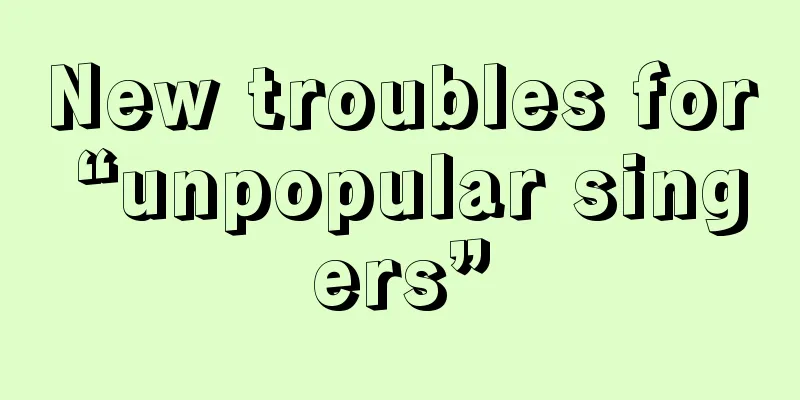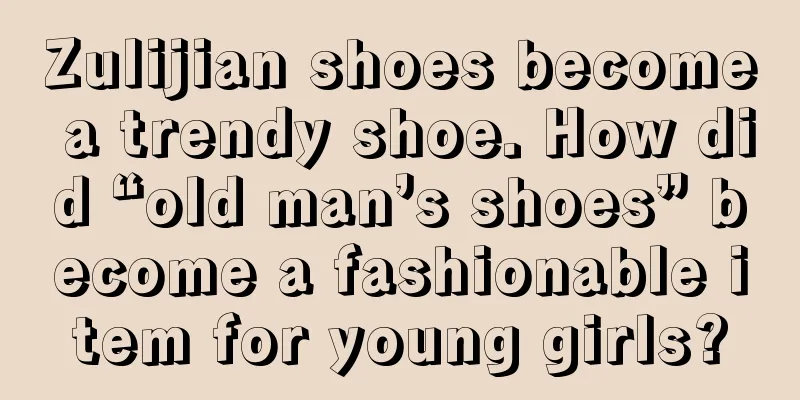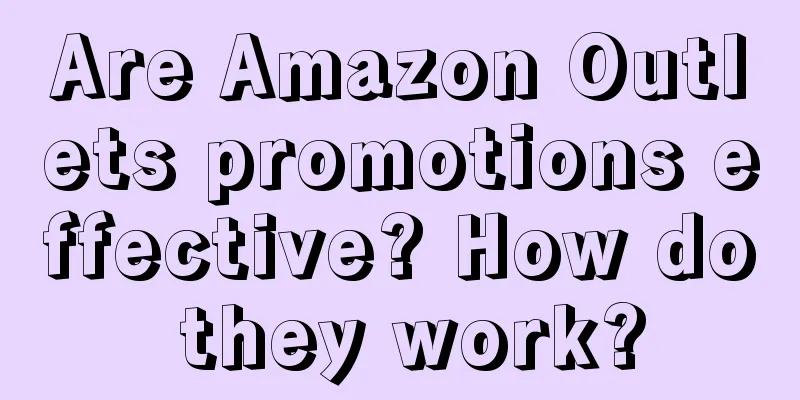New troubles for “unpopular singers”

1. AI is here, Stefanie Sun is no longer a niche star"The singer who was very popular in 2003: Stefanie Sun. The singing voice that will explode in 2023: AI Stefanie Sun." One netizen commented under a popular AI Stefanie Sun cover video on Bilibili. Recently, AI singers’ cover songs and videos have become popular on multiple platforms, such as AI Jay Chou, AI Eason Chan, and AI Stefanie Sun. AI Stefanie Sun has become a top-tier singer due to its good training effect and its ability to adapt to a variety of music styles. According to statistics from the Times Weekly reporter, as of 2:30 p.m. on May 10, more than 50 AI Stefanie Sun videos had been posted on Bilibili that day. A video uploaded by Bilibili creators of AI Stefanie Sun singing Jay Chou's "Hair Like Snow" has received over 1.2 million views, and another creator uploaded a collection of AI Stefanie Sun's songs that has received over 3 million views. QQ Music even has a collection of AI Stefanie Sun's songs, and the podcast section of NetEase Cloud Music has a collection of AI Stefanie Sun's covers. The Times Weekly reporter noticed that many of the creators of these cover songs would mark the use of the AI tool so-vits-svc model and list a disclaimer. Some creators claimed that they created the songs only out of interest and did not make a profit. However, the copyright issue of AI singers still arouses concern. "Making songs for these AI singers inevitably involves copyright issues. According to the Copyright Law, if the purpose is not to make a profit, simply performing the song will not infringe the copyright of the original author of the song. But regardless of whether it is for profit, it may infringe on the rights of the singers imitated by the AI." On May 10, Hu Ziqi, a lawyer at Guangdong Guoding Law Firm, told the Times Weekly reporter. In fact, the recent rapid development of artificial intelligence technology has caused a stir in the music market. Singer Chen Shanni released a new song sung by an AI model in March this year, saying that instead of caring about "whether we will be replaced", creators should be more concerned about "what we can do". Amid the controversy over AI singers, overseas music copyright holders have begun to put pressure on platforms to remove AI cloned songs. As artificial intelligence technology begins to transform the music market, we may not have to wait to hear a variety of "new works" from singers we have never met, but with the copyright infringement issues that follow, how should singers, platforms, and creators of cover songs deal with them? 2. AI Stefanie Sun becomes a top starThe "unpopular singer" Stefanie Sun once again became a top star in the music scene this May. The reason was not because she released a new album, but because "AI Stefanie Sun" appeared on multiple video and music platforms, singing cover songs. AI Stefanie Sun has become a traffic code. Bilibili creator "陈墨瞳1995" began to release AI Stefanie Sun's cover videos in April this year, and 10 cover videos have received over 1.8 million views. Creators on the same platform "罗斯特_x" and "Eternity | L" also began to release AI Stefanie Sun videos in April. The former has more than 10 videos with over 100,000 views, and the latter has 2 videos with over 800,000 views. On multiple video and music platforms, AI Stefanie Sun has a variety of music styles. Singers she has covered include Jay Chou, JJ Lin, Liu Shuang, Eason Chan, Zhou Chuanxiong, Faye Wong, Zhao Lei, Leslie Cheung, Karen Mok, Wu Bai, etc. The cover songs with higher playback volume include "Love in BC", "Hair Like Snow", "I Remember", "Red Beans", "Last Dance", etc. In addition to her high popularity, Stefanie Sun's voice is suitable for AI training and has good results, which is also the reason why the number of songs covered by AI Stefanie Sun has increased rapidly. Some netizens commented that among the many singers' voice AI, Stefanie Sun's is the most versatile and recognizable, while some netizens said that the creators of the cover videos "pull hard at one Stefanie". The Times Weekly reporter noticed that many creators indicated on their homepages or in the introduction of their song collections that the songs were created by AI. The tool used for AI creation is the so-vits-svc model, which can be obtained from GitHub, a hosting platform for open source and private software projects. Perhaps because a large number of people use this model to create AI songs, there is pressure to constitute infringement, so the model has stopped updating since May 9. The creator stated that "I don't know and cannot know what the purpose of users using this project is. All AI models and synthesized audio trained based on this project have nothing to do with the project contributors. All problems arising from this are borne by the users themselves." Because AI singers are involved in copyright infringement, many creators of AI Stefanie Sun's cover videos and music collections have marked statements. For example, the creator "罗斯特_x" said that due to copyright issues and that he created for fun, he would not enable income incentives and charging. The publisher of QQ Music's AI Stefanie Sun's music collection said that the songs in the playlist were uploaded by others, and he only collected the playlist because he was not a registered singer for fear of being blocked. However, the AI singer still caused controversy over copyright infringement. For example, on May 10, "罗斯特_x" said that there are always people copying content without indicating that it is generated by AI. Due to this reason and other personal arrangements, his subsequent updates may become slower. 3. Are AI songs infringing?It is inevitable that the irreversible changes that AI has brought to other industries are likely to be replicated in the music industry. After releasing the song "Teach Me How to Be Your Lover" sung by an AI model, singer Chen Shanni said on social media that "using an AI song to prove that creators will not be replaced by AI" and "trying to explore what the value of the original singer would be if AI can simulate everything about the original singer." In addition to the widely used so-vits-svc model, other generative AI tools are being rapidly launched. For example, earlier this year, Google announced the development of an artificial intelligence tool called MusicLM that can generate music directly from text. Some platforms are also encouraging AI creation. For example, Bilibili launched the "Virtual Voice Creation Plan", and many AI singers have submitted cover videos to it. The popularity of AI Stefanie Sun also shows the strong market demand for AI singers. Many fans expressed their approval of some AI songs online. For example, one netizen said, "The Chinese music scene is finally going to go back 20 years, the gods are coming back with AI", and another netizen teased Stefanie Sun, saying, "There's a lazy guy who doesn't release new songs, so I listened to this as a new song." However, as AI transforms the music industry, the copyright infringement controversy caused by AI Stefanie Sun is likely to continue to expand and recur, and all parties will have to face up to the possible copyright infringement involved in AI cover songs. Hu Ziqi told the Times Weekly reporter that although non-commercial performances that are not for profit and do not charge the public are not considered infringements of the copyright of published songs, "not for profit" here means not obtaining any commercial benefits, not just direct economic benefits. If such AI songs are uploaded to online platforms, and if the online platforms are commercial in nature and have reward functions or creation incentive mechanisms, then uploading is a commercial act and may be suspected of copyright infringement. Hu Ziqi pointed out that the disclaimer issued by the creator of the AI cover song cannot exempt him from the liability for infringement. Such behavior may infringe the performer's rights in the copyright of the singer imitated by AI. The singing style, timbre, singing skills, etc. of the imitated singer together constitute the singer's performance style and are protected by the performer's rights; this kind of "cover" may not conform to the wishes of the imitated singer himself, affecting his social evaluation and suspected of infringing his reputation; such AI needs to use the songs sung by the imitated singer for training. If the training process does not obtain the permission of the relevant copyright holder of the song, it may be suspected of infringement. To avoid infringement, the consent of the imitated singer and the relevant copyright holder of the song should be obtained. At the same time, the platform is a commercial platform and has the responsibility to regulate the uploading of such songs and videos. However, because AI singers such as Stefanie Sun have only been on multiple music platforms for a short time, some platforms have not yet developed a response strategy. On May 10, an insider from a music platform told the Times Weekly reporter that this type of AI singer has just become popular, and the platform has not paid much attention to it. A creator who has posted multiple popular AI Stefanie Sun cover videos on the video platform also told the Times Weekly reporter that the platform has not yet intervened in this matter. It is worth noting that some overseas copyright holders have already fought back against AI songs. According to media reports, Universal Music and other copyright holders have put pressure on streaming music platforms such as Spotify and Apple to ban AI works that infringe on the company's melody and lyrics copyrights. In response to a media interview, a Universal Music spokesperson said that the company has a moral and commercial obligation to its artists to prevent the unauthorized use of their music and to require the platform to stop using content that infringes on their rights. On May 9, Douyin clarified that when using generative AI technology, publishers should clearly mark AI-generated content to help other users distinguish between virtual and real life, especially scenes that are easily confused. At the same time, publishers are responsible for the consequences of AI-generated content. Author: Zheng Xutong; Editor: Lin Mingming Original title: New troubles for "unpopular singer" Stefanie Sun Source public account: No. 19 Business Research Society (ID: time_biz), penetrate the fog of business and return to the essence of value. |
>>: For private domain merchants, is there no other option but to buy traffic at a high price?
Recommend
With more than 50 collaborations in one month, can the two-dimensional world save consumer brands?
Today in 2024, we are witnessing an unprecedented ...
0 budget, the way to rejuvenate the brand has changed again!
Has the way contemporary brands are playing with y...
What is the difference between selling on Amazon and operating on Amazon?
Amazon is the world's largest cross-border e-c...
2024, Become a Brand that Listens to Advice
As the saying goes, listening to others' advic...
How many chances do I have to file a complaint with Shopee? Is the complaint with Shopee useful?
If you do business on Shopee and the platform misj...
Step-by-step guide to the Super User Program 4: Motivation - How to understand your true motivation?
"Super users" have a strong influence on...
Don’t use private domain traffic to explain everything anymore
Many people are confused about private domains. Wh...
How often does Shopee's funding cycle occur? What should I pay attention to?
For merchants who have just settled in the Shopee ...
Can I sell cosmetics on Amazon? What do I need to provide?
The sales of products such as cosmetics are still ...
6 practical tips to double your work efficiency after the holidays (recommended collection)
How can you quickly and efficiently get back to wo...
Collaborations, colors, and overwhelming wealth…how will brands “do things” in 2023?
In 2023, the brand marketing war is getting more a...
With low prices and weak reach, is Douyin e-commerce approaching Pinduoduo?
Recently, Douyin has made important changes to the...
How is the video account live streaming sales? Merchants: Not so competitive, very similar to Douyin in 2020
Live streaming with goods on video accounts has be...
Live-streaming recruitment is hot, but chaos is frequent
Graduation season is here again, and livestreaming...
Can I re-register if I failed to register with Shopee? What information do I need?
Now, whether it is domestic or foreign e-commerce,...









